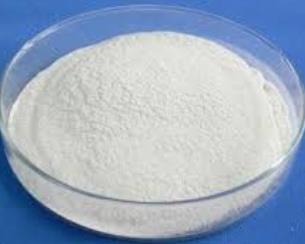CMC - CARBOXY METHYL CELLULOSE
Carboxymethyl cellulose (CMC) is an additive used in different industries as a thickener, stabilizer or filler among other application

Description
La Carboxymethyl cellulose or CMC is a water soluble salt. It belongs to the family of the polymers produced by etherification of native cellulose by substituting hydroxyl groups of carboxymethyl groups in the cellulose chain.
Being dissolved in hot or cold water, the CMC can be produced with different physical and chemical properties. These properties can affect the behavior of the product in its various applications, as well as being essential for optimizing production costs.
It is a non-toxic product
Applications
Is used as an additive in industry that enables different applications:
- Thickener
- Stabilizing
- Filled
- Dietary fiber
- Emulsifier
Allow the formation of gels in pharmaceutical industries and for the precipitation of tartaric salts in white wines.
Other applications can be performed in the following fields:
- Construction: In cement compositions acting as a stabilizer and hydrophilic agent.
- Detergents: Used for soaps and detergents acting as an inhibitor of fat redeposition on fabrics after being eliminated by the detergent.
- Paper: Reduce consumption of wax paper wax having lower penetration of wax paper cartons.
- Agriculture: Suspending agent in pesticides and water-based sprays. Also as an aid in the degradation of some highly polluting fertilizers.
- Adhesives: Additive in glues and adhesives.
- Cosmetics: For dental impression materials and pastes or gels toothpaste.
- Water-based paints: As thickener and suspending of the pigments in the fluid.
- Oil: In drilling muds to avoid ground settlement.
- Plastic plastic viscosity increases as latex.
- Ceramics: Used to join pieces of porcelain.
- Textile: antideformate Agent fabrics.
- Pharmaceutical industry: As forming gels, stabilizer for suspensions, emulsions, sprays and bioadhesive.
- Food: Assistant in the batter ice cream, cream and cream; as an auxiliary to form gels in gelatins and puddings; dressings and fillings thickener, suspending agent in fruit juices, etc.
- Medicine: Formation of gels in heart surgeries, thoracic and cornea.
Specifications
Thanks to its versatility, the CMC can be used for various functions, which facilitate the use by different industries. Its most prominent features are:
- Solubility
- Rheology
- Adsorption Surfaces
These main properties facilitate the CMC to control different properties of aqueous systems stabilizing effects such as water retention, thixotropic or training films.
There are different parameters that define the properties of the CMC:
- Purity (content of active CMC): the CMC is produced with sodium purity giving the product.
- Viscosity: one of the most interesting features of the CMC which can vary from low to high. It is measured by digital viscometers in certain temperatures and in different dissolution percentages (1%, 2% or 4%).
- Degree of substitution: is the average number of sodium carboxymethyl groups per anhydroglucose unit in the cellulose structure. This parameter is important in various areas of product application.
- Physical form: CMC can produce powder or granular.
Supplies
For any other inquiry about the product or its supply, or to request a quotation, please contact us.
You may also be interested in
You can consult other chemical products: Microespheres, Natural zeolite, Siynthetic zeolite, Activated carbon , Plasticizers , CMC, Sodium Metaperiodate
CONTACT US
We are characterised by our attention, flexibility, speed and delivery reliability. The best personalised service with a reliable supplier for regular deliveries.



